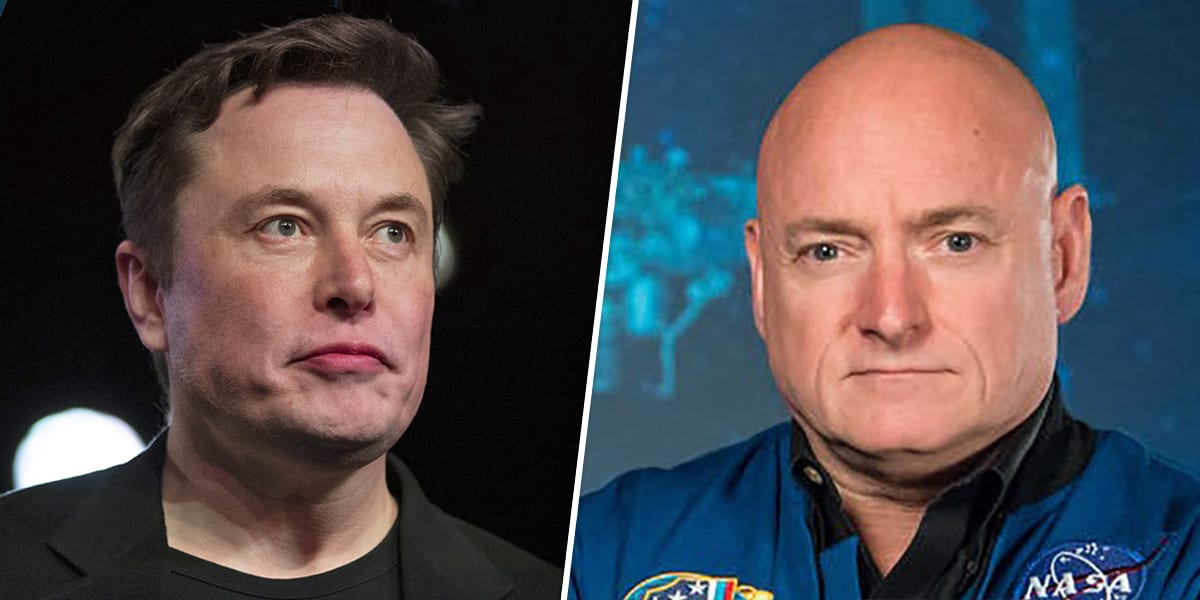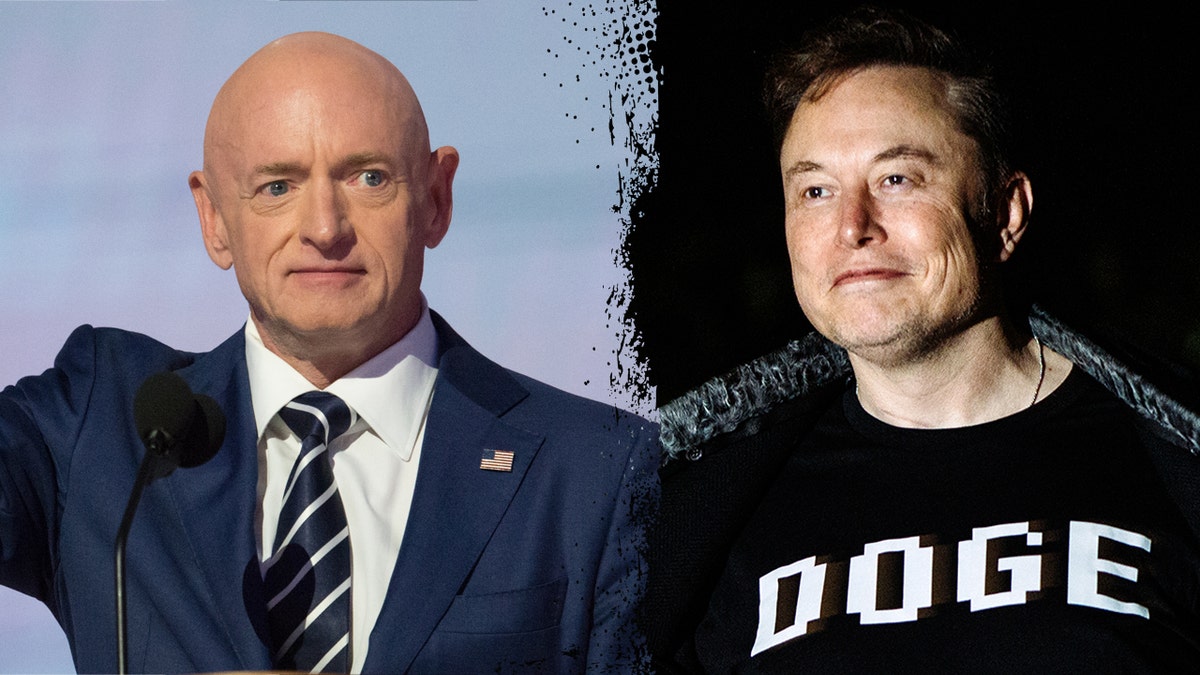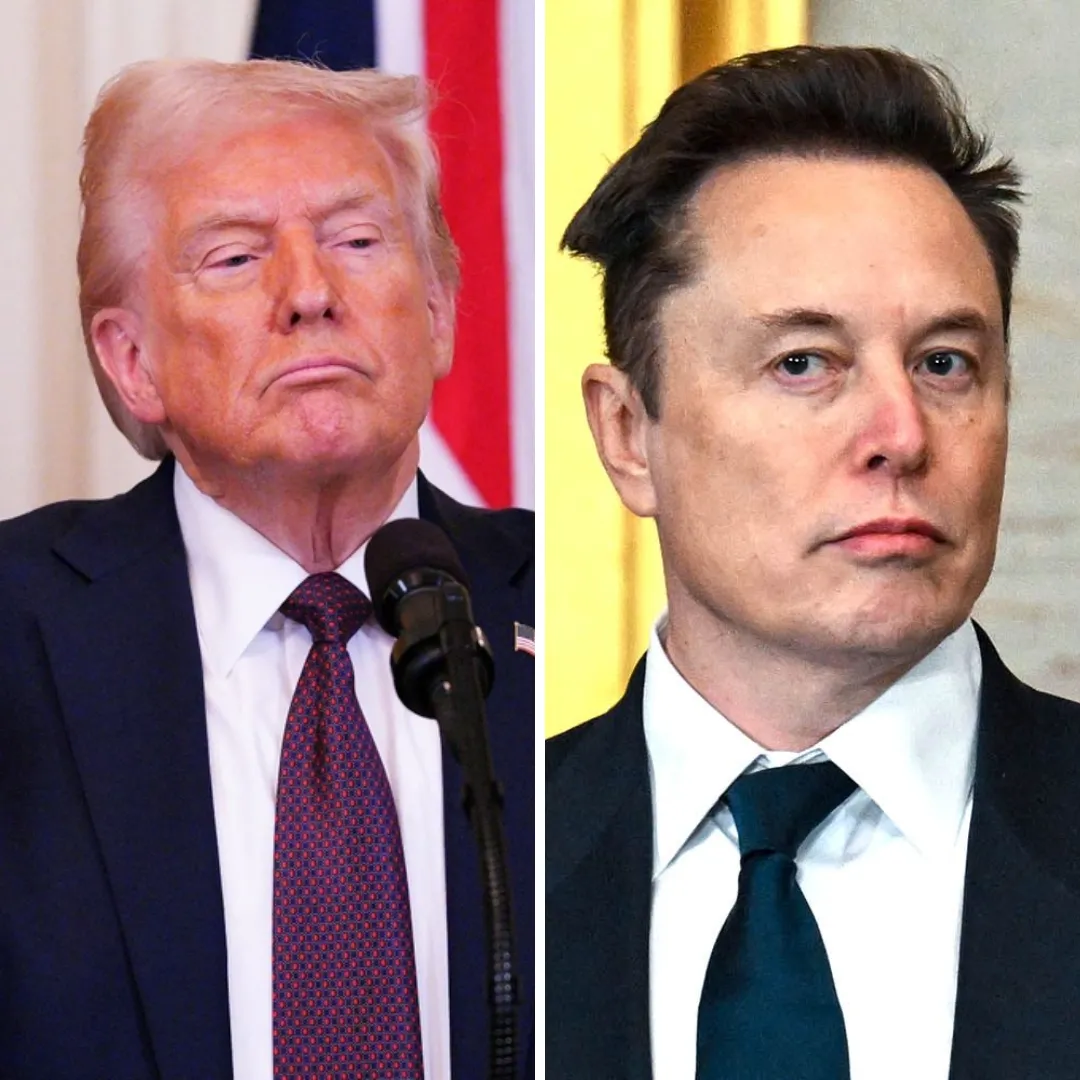
Elon Musk, the billionaire CEO of Tesla and one of President Trump’s most influential informal advisers, has once again stirred controversy—this time by accusing a sitting U.S. senator of treason. His comments, made on Fox News and directed at Democratic Senator Mark Kelly (D-Ariz.), are reigniting debates over the United States’ role in the Russia-Ukraine war, the boundaries of political discourse in a divided nation, and the growing influence of unelected figures in shaping U.S. foreign policy.
The storm erupted after Musk labeled Sen. Kelly a “traitor” on X (formerly Twitter), responding to the senator’s recent trip to Ukraine, during which Kelly advocated for continued U.S. support for the war-torn nation. In a follow-up appearance on Fox’s “Special Report” with Bret Baier, Musk doubled down, refusing to retract his accusation and instead reinforcing it with what many viewed as dangerously simplistic reasoning.
“I think somebody should… care about the interests of the United States above the interests of another country. If they don’t, they’re a traitor,” Musk told Baier.
Baier, clearly taken aback, noted that Kelly is a decorated Navy combat pilot, a former NASA astronaut, and a sitting U.S. senator — hardly someone whose loyalty to the United States has been questioned before.
“That doesn’t mean it’s okay for him to put the interests of another country above America,” Musk replied bluntly.
The clash immediately sparked a firestorm on social media, cable news, and within political circles in Washington. Musk’s remarks struck many as more than a personal attack—they were viewed as a direct challenge to one of the Senate’s few members with firsthand military and spaceflight experience, and to the bipartisan consensus that Russia’s aggression in Ukraine demands a strong U.S. response.
Sen. Kelly did not remain silent. In a sharp rebuke posted to X, he fired back at Musk, saying: “Elon, if you don’t understand that defending freedom is a basic tenet of what makes America great and keeps us safe, maybe you should leave it to those of us who do.”
Kelly’s trip to Ukraine earlier this month included visits to military hospitals, meetings with Red Cross personnel, and consultations with Ukrainian defense officials. The visit was part of a broader effort by a bipartisan congressional delegation to reinforce U.S. commitment to Ukraine, even as some voices within the Republican Party—and now, prominent outside figures like Musk—question continued American support.
At the heart of this controversy lies a broader geopolitical rift playing out in American politics. On one side, establishment figures in both parties continue to view Ukraine’s struggle against Russia as a moral imperative and a strategic necessity.
On the other, a growing bloc—largely concentrated within the populist wing of the Republican Party—argues for a “realignment” of U.S. foreign policy, prioritizing domestic needs and avoiding what they label as “foreign entanglements.”
Musk, whose social media reach rivals that of any politician, has become a vocal champion of this realignment. Though unelected, his opinions increasingly shape public discourse, particularly within Trump-aligned circles.
His attacks on Kelly are emblematic of this shift—and, critics argue, an example of how misinformation and hyperbole are weaponized against political opponents.
The controversy comes as President Trump walks a tightrope on Ukraine. During his second term, he has shown increasing reluctance to commit new funding or military assistance to the conflict, preferring instead to push for a negotiated peace with Russian President Vladimir Putin.
Ukrainian President Volodymyr Zelensky’s visit to the White House in February was tense. According to sources familiar with the Oval Office exchange, Trump criticized Zelensky for being “disrespectful,” while Vice President J.D. Vance accused the Ukrainian leader of showing insufficient gratitude for U.S. support.
Musk’s recent comments appear to align with this administration stance, reinforcing Trump’s belief that American foreign policy should be transactional, not moralistic.
Perhaps the most disturbing aspect of Musk’s remarks is his casual use of the term “traitor.” Historically, such accusations carry grave implications. In U.S. history, charges of treason are rare, serious, and carefully considered.
Political analysts and legal experts warn that normalizing this language in routine political debate sets a dangerous precedent. “Calling a sitting senator a ‘traitor’ for advocating a widely supported foreign policy is not just irresponsible — it’s inflammatory,” said Dr. Carla Nguyen, a political science professor at Georgetown University. “This isn’t just rhetoric. It undermines democratic norms.”
Critics also point out the irony of Musk—an immigrant from South Africa who now wields significant influence over U.S. national discourse—questioning the patriotism of a veteran and public servant like Kelly.
This is not the first time Musk and Kelly have clashed. Earlier this year, Kelly and his twin brother, retired astronaut Scott Kelly, confronted Musk online after the billionaire insulted another astronaut on X. Musk had called Danish astronaut Andreas Mogensen “an idiot,” prompting Sen. Kelly to respond:
“Hey @ElonMusk, when you finally get the nerve to climb into a rocket ship, come talk to the three of us.”
This earlier spat, while relatively minor, foreshadowed the personal animosity that now appears to be driving their interactions.
Musk’s involvement in policy debates raises questions about the growing role of billionaires in shaping national direction. His companies—Tesla, SpaceX, Neuralink, and Starlink—already hold vast contracts with the federal government.
His proximity to President Trump, as a top informal adviser, adds a layer of complexity to his public statements.
While Musk claims to advocate for American interests, critics argue that his views often reflect a Silicon Valley libertarianism that prioritizes market freedom and isolationism over traditional diplomacy.
“Elon Musk’s voice matters, but it’s not always helpful,” said a senior national security official speaking on background. “When someone with that kind of platform makes reckless accusations, it has ripple effects that go far beyond social media.”
The backlash to Musk’s comments has been swift. Democratic lawmakers have denounced his rhetoric, and even some Republicans have expressed unease—though few have spoken out publicly.
The incident also puts pressure on the Trump administration to clarify its own stance. While officials have emphasized that they want a diplomatic resolution to the war, they have not echoed Musk’s language. Whether that silence is strategic or indicative of internal disagreement remains unclear.
As the U.S. continues to navigate its role in the Ukraine conflict, the divide between institutional leadership and populist voices will likely deepen. Musk’s statements—and Kelly’s forceful rebuttal—illustrate just how volatile the conversation has become.

In an era where foreign policy debates are no longer confined to diplomatic backchannels or congressional hearings but play out in real time on social media, the stakes have never been higher.
What is certain is that Elon Musk is not stepping back. His influence in Trump’s orbit, combined with his control of one of the world’s most powerful communication platforms, ensures that his voice will continue to reverberate through American political discourse.
Whether that voice helps shape a more informed debate—or pushes it further into division and spectacle—remains to be seen.






